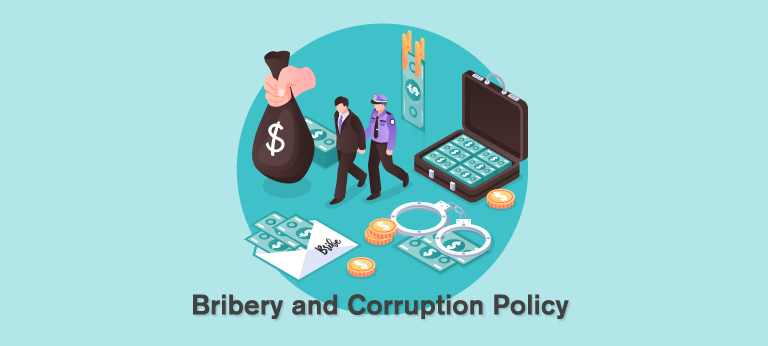
What is bribery and corruption?
A bribe is an inducement or reward offered, promised or provided to gain a commercial, contractual, regulatory or personal advantage. Corruption is the misuse of office or power for personal/private gain.
IRATA’s position on bribery
As well as complying with the Bribery Act 2010, we have internal controls in place that are adjusted in accordance with the level of the perceived threat risk.
Scope and purpose of this policy
It is illegal for our organisation and representatives to offer, promise, give, request, agree, receive or accept bribes. This policy is to publicly communicate IRATA International’s (IRATA) position on bribery and corruption. As well as this policy, IRATA’s employees are subject to additional internal contractual terms.
It is our policy to conduct all our business in an honest and ethical manner. We have a zero-tolerance approach to bribery and corruption and are committed to acting professionally, fairly and with integrity in all our commercial and secretariat activities, and relationships, wherever we operate. We continually implement and enforce systems to counter the threat risk of bribery and corruption. We uphold all laws relevant to countering bribery and corruption in all the jurisdictions in which we operate. Despite this, we are bound by the laws of the UK, including the Bribery Act 2010, in respect of our conduct both in the UK and abroad.
Who does this policy apply to?
This policy applies to all individuals representing IRATA, including directors, senior managers, officers, employees, consultants, contractors, trainees, volunteers, agents, or any other person(s) representing or associated with IRATA. Additional contractual terms may exist to uphold all laws relevant to countering bribery and corruption in the jurisdictions in which we operate.
The IRATA Code of Conduct and Code of Ethics set out the standards and requirements expected of all individuals and organisations representing IRATA.
What is not acceptable?
We do not (nor do we procure someone) to:
- give, promise to give, or offer, a payment, gift or hospitality with the expectation or hope that a commercial advantage will be received, or to reward a commercial advantage already given;
- give, promise to give, or offer, a payment, gift or hospitality to a government official, agent or representative to “facilitate” or expedite a procedure;
- accept payment from a third party that we know, or suspect is offered with the expectation that it will obtain a commercial advantage for them;
- accept a gift or hospitality from a third party if we know or suspect that it is offered or provided with an expectation that a commercial advantage will be provided by us in return;
- threaten or retaliate against another worker or IRATA representative who has refused to commit a bribery offence or who has raised concerns under this policy; or
- engage in any activity that might lead to a breach of this policy.
Facilitation payments and ‘kickbacks’
We do not make, and will not accept, facilitation payments or ‘kickbacks’ of any kind. Facilitation payments are typically off record (unofficial) payments made to secure or expedite a routine government action by a government official. Kickbacks are typically payments made in return for a commercial favour or advantage. We avoid any activity that might lead to, or suggest, that a facilitation payment or kickback will be made or accepted by us.
Donations
We do not make contributions to political parties.
How to raise a concern
Please contact us about any issue or suspicious activity that conflicts with this policy.
Contact:
Tel: +44 (0)1233 754600,
Fax +44(0) 1233 754601,
or write to [email protected].
Your call may be recorded for training and quality purposes.
QP-278ENG v001
